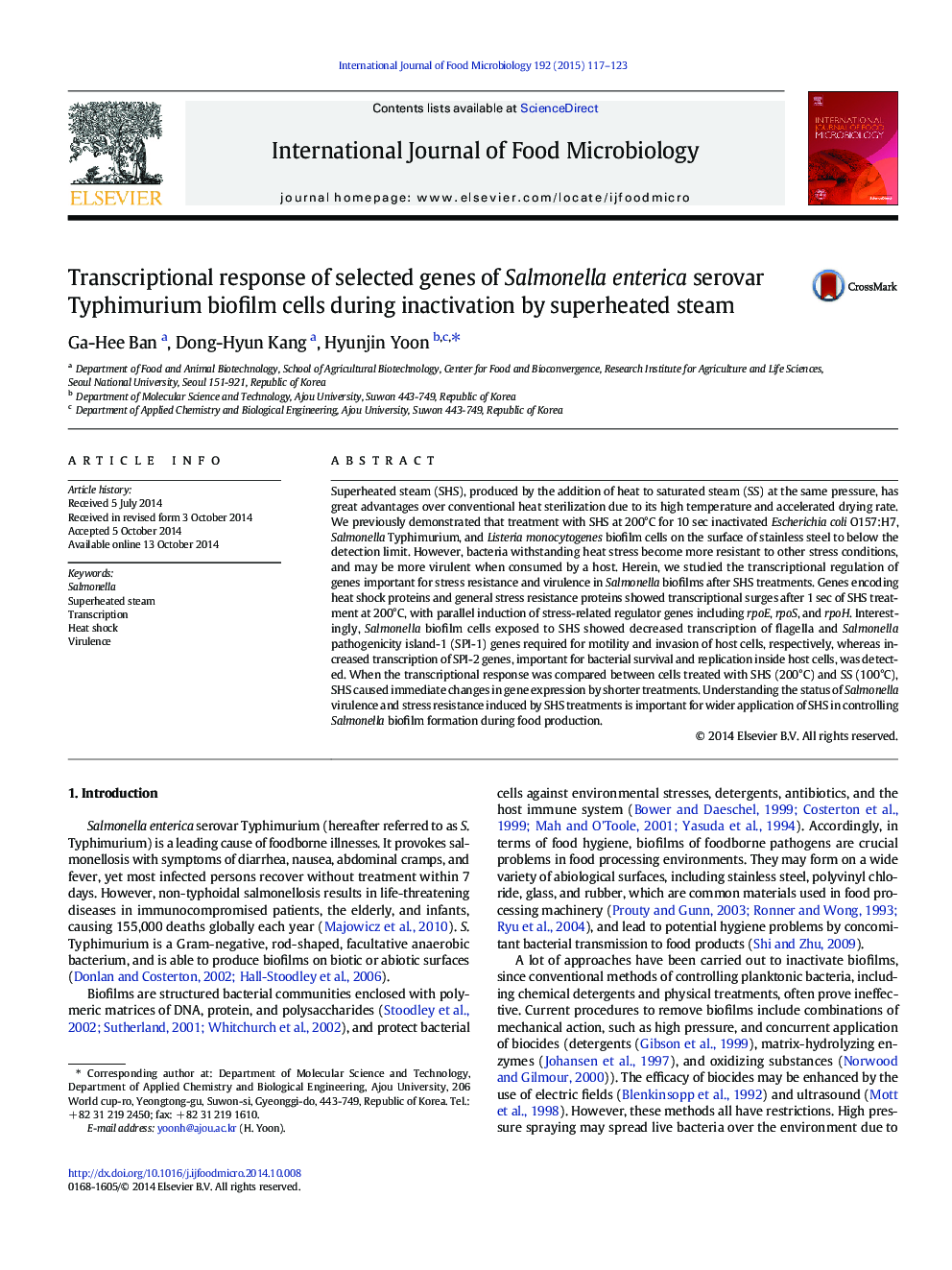| کد مقاله | کد نشریه | سال انتشار | مقاله انگلیسی | نسخه تمام متن |
|---|---|---|---|---|
| 6289973 | 1616591 | 2015 | 7 صفحه PDF | دانلود رایگان |

- We investigated the transcriptional response of Salmonella to superheated steam.
- Superheated steam (SHS) induced transcriptional surge with 1 sec treatment.
- SHS caused transcriptional increases in heat shock genes, SPI-2, and fimbrial genes.
- SHS caused transcriptional decreases in SPI-1 and flagellar genes.
Superheated steam (SHS), produced by the addition of heat to saturated steam (SS) at the same pressure, has great advantages over conventional heat sterilization due to its high temperature and accelerated drying rate. We previously demonstrated that treatment with SHS at 200°C for 10 sec inactivated Escherichia coli O157:H7, Salmonella Typhimurium, and Listeria monocytogenes biofilm cells on the surface of stainless steel to below the detection limit. However, bacteria withstanding heat stress become more resistant to other stress conditions, and may be more virulent when consumed by a host. Herein, we studied the transcriptional regulation of genes important for stress resistance and virulence in Salmonella biofilms after SHS treatments. Genes encoding heat shock proteins and general stress resistance proteins showed transcriptional surges after 1 sec of SHS treatment at 200°C, with parallel induction of stress-related regulator genes including rpoE, rpoS, and rpoH. Interestingly, Salmonella biofilm cells exposed to SHS showed decreased transcription of flagella and Salmonella pathogenicity island-1 (SPI-1) genes required for motility and invasion of host cells, respectively, whereas increased transcription of SPI-2 genes, important for bacterial survival and replication inside host cells, was detected. When the transcriptional response was compared between cells treated with SHS (200°C) and SS (100°C), SHS caused immediate changes in gene expression by shorter treatments. Understanding the status of Salmonella virulence and stress resistance induced by SHS treatments is important for wider application of SHS in controlling Salmonella biofilm formation during food production.
Journal: International Journal of Food Microbiology - Volume 192, 2 January 2015, Pages 117-123